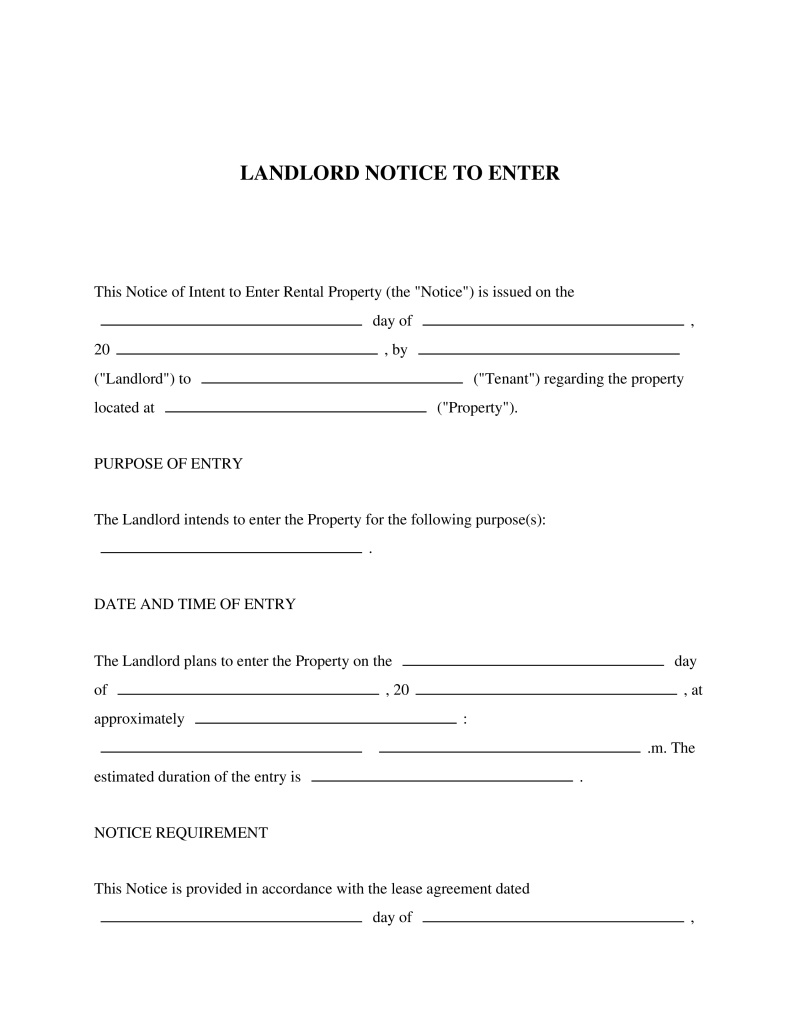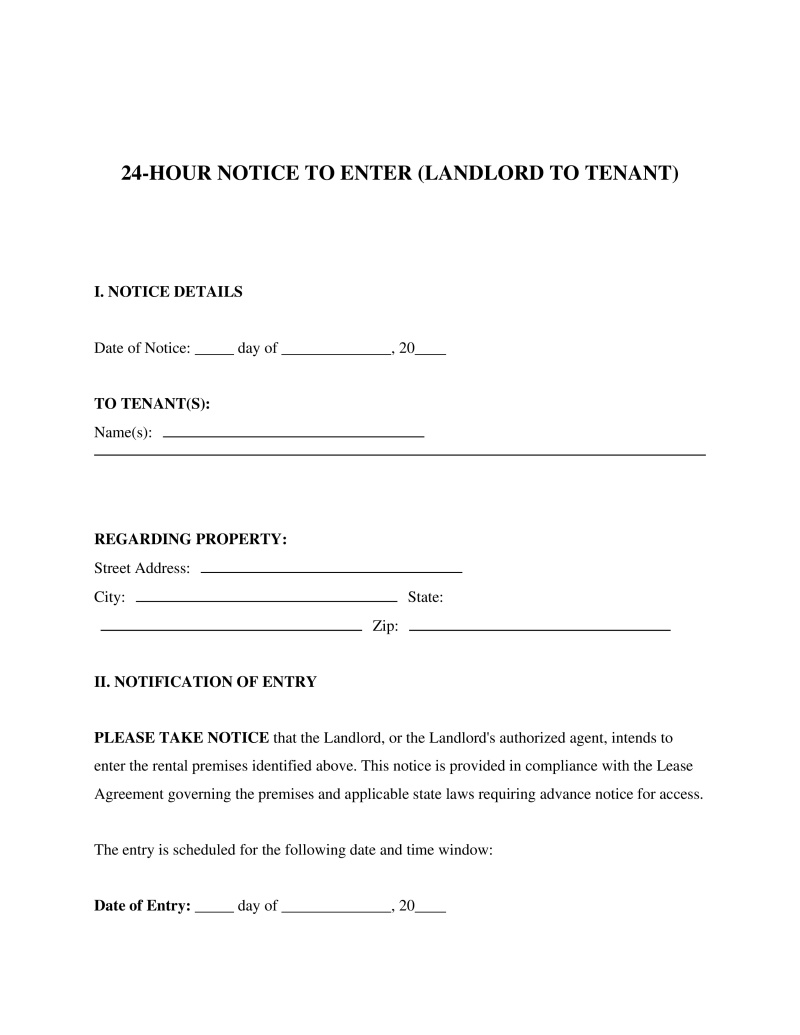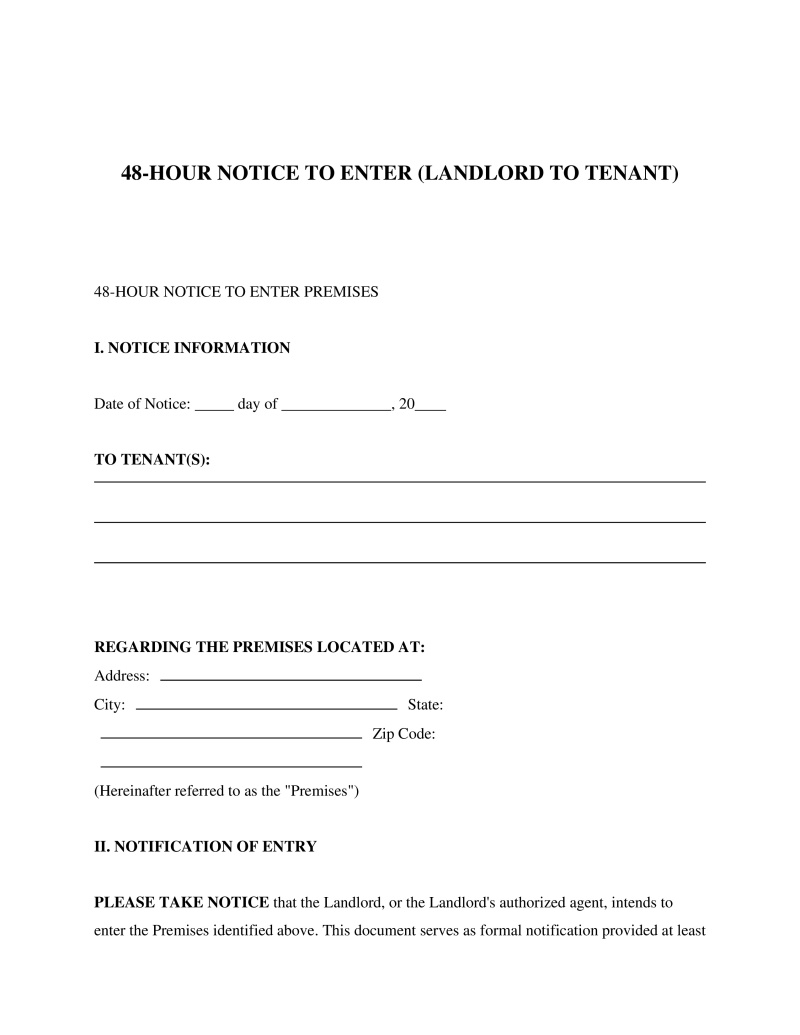A Landlord Notice to Enter is a legal notification that informs tenants of the landlord's intent to enter the premises under specific conditions.
Landlord Name
Write the full name of the landlord, which is the person or company renting out the property to you. Use their legal name as it appears on the rental agreement or lease. This information is important because it identifies who is responsible for the property and any legal matters related to it.

Table of Contents
What is a Landlord Notice to Enter?
A Landlord Notice to Enter is a formal document that a landlord or property manager uses to inform tenants of their intention to enter the rented premises. This document is crucial for maintaining a respectful and lawful relationship between landlords and tenants, ensuring that the privacy of the tenant is respected while allowing landlords to perform necessary duties related to property management and maintenance. It outlines the reasons for entry, the timing, and often, how much notice will be given, aligning with legal requirements to prevent unauthorized access. Individuals managing rental properties need this document to carry out inspections, repairs, or showings in a manner that's compliant with local laws, thereby reducing potential conflicts or misunderstandings.
Key Features
Important Provisions
- Notice period requirement: Specifies how far in advance tenants will be notified before entry.
- Purpose of entry: Clearly defines the reason(s) for entering the rented premises.
- Entry times: Sets out acceptable hours/days for entry, typically during normal business hours unless otherwise agreed.
- Tenant consent: May include provision for tenant consent, especially in non-emergency situations.
Pros and Cons
Pros
- +Helps ensure landlords remain compliant with state laws regarding notice periods before entering.
- +Builds trust between landlords and tenants by respecting tenant privacy through formal notice.
- +Reduces the risk of disputes or legal issues related to unauthorized property access.
- +Facilitates smooth property management operations like maintenance and inspections.
- +Can be tailored to specific situations, providing flexibility while maintaining legal protections.
Cons
- -Requires understanding of local laws to correctly fill out and serve notice according to jurisdictional requirements.
- -May not prevent all disputes if tenants feel their rights are infringed upon despite proper notice.
- -In emergency situations, adherence to standard notice periods may not be practical or legally necessary.
Common Uses
- Notifying tenants about upcoming routine property inspections.
- Informing tenants of necessary repair or maintenance work inside the rental unit.
- Scheduling visits to show the property to prospective buyers or new renters.
- Conducting state-mandated safety checks such as smoke detector inspections.
- Entering units for pest control treatments as part of regular building maintenance.
Frequently Asked Questions
Related Documents
Do you have a question about a Landlord Notice to Enter?
Example questions:
Not the form you're looking for?
Try our legal document generator to create a custom document
Community Discussion
Share your experience and help others
Legal Notice: Comments are personal opinions and do not constitute legal advice. Always consult a qualified attorney for matters specific to your situation.


Comments (0)
Leave a Comment
No comments yet. Be the first to comment!